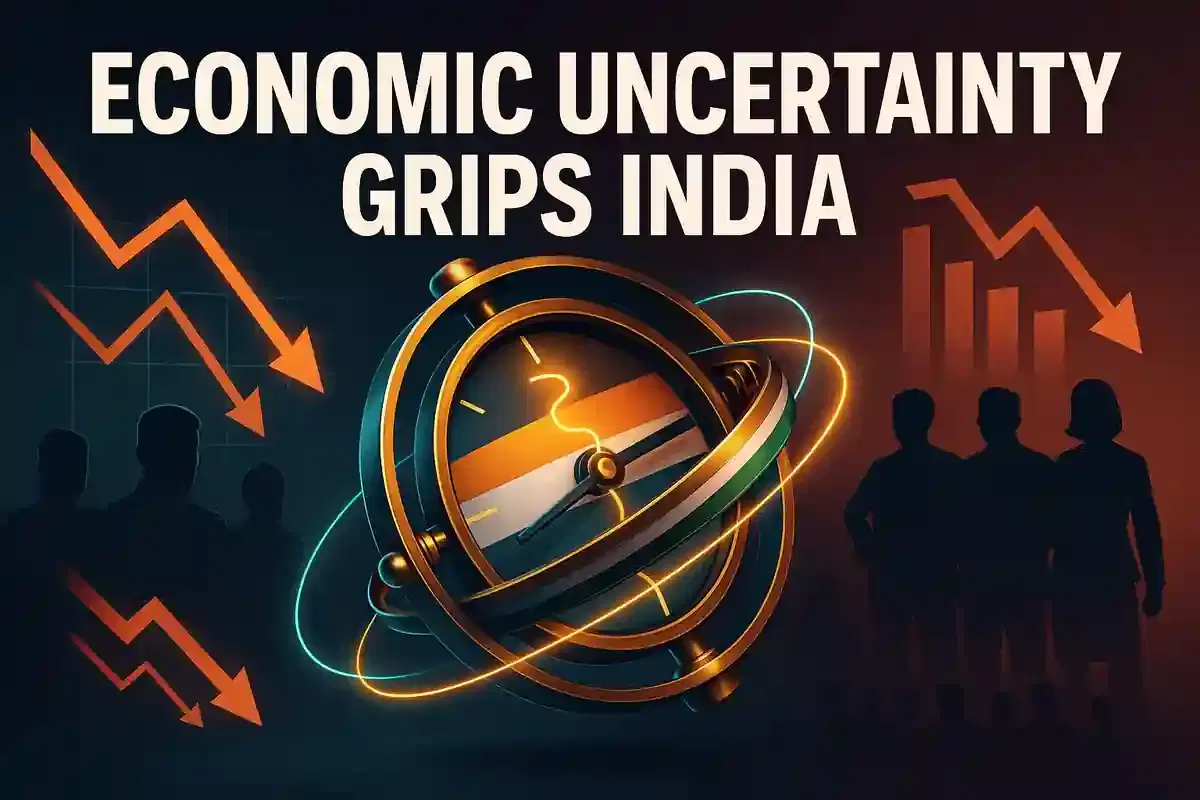Indian Economy Faces Policy Paralysis Due to External Shocks and Bureaucratic Inertia, Analyst Warns
Economy
|
29th October 2025, 12:42 AM

▶
Short Description :
Detailed Coverage :
The article posits that external events, exemplified by actions from the United States, have destabilized the management of the Indian economy, creating significant uncertainty. It distinguishes between manageable 'risk' and unmanageable 'uncertainty,' likening the current economic management to an aircraft without a gyroscope – disoriented.
Historically, India has faced numerous exogenous shocks, ranging from wars and oil crises to currency devaluations and sanctions. The consistent response from successive governments has been to slow down economic activity as a protective measure against uncertainty. However, the core issue highlighted is the prolonged persistence of this slowdown, often driven by bureaucratic self-preservation rather than genuine economic necessity. Senior civil servants, sensing increased control during uncertain times, tend to resist reforms that might diminish their power, leading to an 'endogenous' shock or policy paralysis.
The current situation, influenced by factors like Donald Trump's policies, has created enough uncertainty for the bureaucracy to reinforce this pattern. The Modi government is advised to overcome this inertia, consulting experts and potentially overruling civil servants, similar to how Rajiv Gandhi is cited to have pushed for growth policies against bureaucratic resistance.
Impact This news has a moderate impact on the Indian stock market, potentially affecting investor confidence and the pace of economic reforms. A prolonged slowdown or postponement of reforms could lead to subdued market performance. Rating: 5/10
Difficult Terms Gyroscope: An instrument used for maintaining the orientation and direction of moving objects like aircraft. Exogenous Shocks: Events or changes originating from outside a system, which can significantly affect its behavior (e.g., global economic crises, wars). Endogenous Shock: An event or change that originates from within a system, often a reaction to external stimuli or internal dynamics (e.g., bureaucratic response leading to policy paralysis). Bretton Woods System: A post-World War II system of fixed exchange rates established by the Bretton Woods Agreement. Balance of Payments Crisis: A situation where a country cannot afford to pay for its essential imports or service its foreign debt.